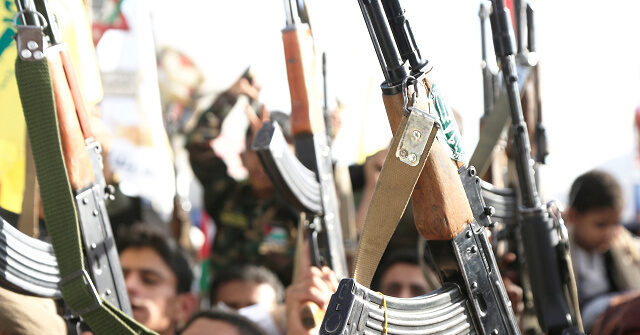United Nations experts have alerted the Security Council regarding the Shiite Houthi group in Yemen, identifying a notable escalation in their international support, predominantly from Iran, since the onset of hostilities between Israel and Hamas in October 2023. A comprehensive report, extending over 500 pages, illustrates a considerable enhancement in the Houthis’ technical capabilities, a significant increase in recruitment, and a newfound capacity to disrupt global shipping particularly in the Red Sea, highlighting a shift in the geopolitical landscape. The report documents Houthi activities from September 2023 onward, linking the uptick in support to recent geopolitical developments, including the unfreezing of $6 billion in Iranian assets that coincided with the release of American hostages, an initiative the Biden administration denounced as not a form of ransom.
Critics have lamented that the unfreezing of funds effectively enriches Iran’s financial resources, thus expanding its ability to sponsor terrorism across the globe. With Iran being recognized as the world’s most prominent state sponsor of terrorism, the nation’s backing of militant groups like Hamas and the Houthis has raised alarms. Deputy Treasury Secretary Wally Adeyemo has substantiated these concerns, asserting that any financial gain would invariably support Iran’s violent endeavors, demonstrating a clear connection between financial flows and terrorist activities. The report draws attention to the extent of Iranian involvement, amplifying the concern surrounding illicit funding and training able to enhance the operational capabilities of the Houthis significantly.
Notably, the experts’ findings spotlight the Houthis’ striking proliferation of maritime violence, with a record of 134 attacks documented in the Black Sea region from November to July. The group’s public rationale for these activities is a response to Israeli military operations against Hamas. However, the attacks appear indiscriminate, inflicting significant disruptions on international shipping, evidenced by a staggering 90% decrease in container traffic through the critical shipping lanes of the Red Sea and Suez Canal. These assaults have spurred a dramatic increase in maritime insurance premiums and have had adverse national economic repercussions, particularly for Egypt, which depends heavily on toll income from the Suez Canal.
The report posits that the Houthis have transitioned from a domestic armed faction to a noteworthy global menace, a transformation largely attributed to unprecedented levels of Iranian military, financial, and operational support. This shift places the Houthis on a new trajectory of influence in the Middle East, moving them beyond localized conflicts. Such substantial aid has elevated the group’s armament capabilities significantly, allowing them a greater breadth of operational activity beyond Yemeni territory. The Houthis’ metamorphosis into a formidable military entity with global operational capacity strikes concern among international observers and signals a redirection of the regional power dynamics.
Moreover, the investigation unveiled a troubling surge in Houthi recruitment, particularly focusing on minors, resulting in the group’s expansion to approximately 350,000 members compared to the 220,000 reported in 2022. Initially recognized as a significant regional actor following their 2014 seizure of Yemen’s capital, the Houthis have leveraged Iranian backing to sustain and enhance their military endeavors amid an extended conflict that commenced with the ousting of Yemen’s legitimate government. Their pervasive ideologies, underscored by intense anti-American and anti-Israel sentiments, have increasingly galvanized resources and support, further complicating the regional security situation.
The geopolitical dynamics have evolved under the Biden administration, which notably removed the Houthis from the State Department’s terrorist organization list, a decision intended to facilitate humanitarian aid. Nonetheless, subsequent developments revealed that this move only emboldened the group, allowing them to strengthen alliances with Iran while escalating attacks on not only Saudi Arabia but also international shipping. Despite criticisms directed towards the administration regarding its handling of the situation, President Biden has maintained that the Houthis’ designation as a terrorist organization had no bearing on their growing influence. Conversely, recent reports of absorbed Iranian revenues and the alleviation of sanctions underscore an intricate relationship between U.S. foreign policy, Iranian state activities, and the evolving threat posed by the Houthis and their affiliates, establishing a pressing need for scrutiny and strategic response on an international scale.

